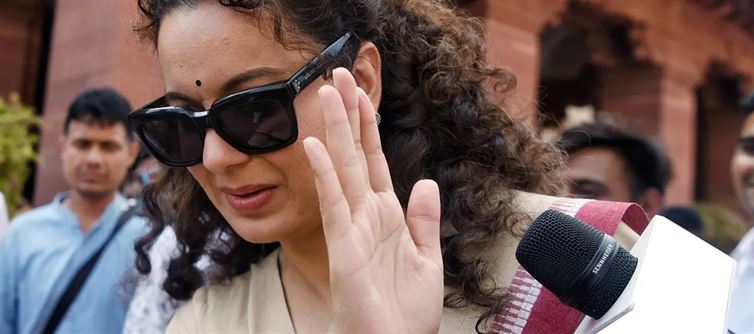
On 10th July, bjp mp kangana ranaut took to social media to criticize celebrities like Diljit Dosanjh, singers, and cricketers, accusing them of lacking nationalistic values and not taking a firm stand for the country. Known for her polarizing statements, kangana often positions herself as a champion of patriotism, expecting public figures to conform to a particular narrative of nationalism. Her comments, however, drew criticism for being one-sided, especially given that these celebrities often avoid political controversies to maintain focus on their professions and personal safety.
Fast forward to 26th July, when the Board of Control for cricket in india (BCCI) officially agreed to play an india vs pakistan match in the Asia Cup, despite earlier political posturing that suggested india would avoid playing pakistan on diplomatic grounds. The bcci, headed by Jay Shah, who is also the son of Union home minister amit shah, made this decision with no apparent backlash from the same voices that often cry foul over nationalism. It raises a critical question: why is there selective outrage? If playing cricket with pakistan is seen as compromising national pride, shouldn’t that criticism apply equally to the bcci and its leadership?
This stark inconsistency exposes a double standard in how nationalism is weaponized, often used to target artists and sportspersons who have little influence over international policy, while powerful institutions like the bcci are conveniently spared. It’s worth asking whether kangana Ranaut—or any politician demanding loyalty tests from celebrities—would dare make similar accusations against Jay Shah, a figure entrenched in both cricket administration and political power. The silence on this front speaks volumes about the selective use of patriotism as a political tool. True nationalism should be principled and consistent, not a tool of convenience wielded only against the vulnerable.
Fast forward to 26th July, when the Board of Control for cricket in india (BCCI) officially agreed to play an india vs pakistan match in the Asia Cup, despite earlier political posturing that suggested india would avoid playing pakistan on diplomatic grounds. The bcci, headed by Jay Shah, who is also the son of Union home minister amit shah, made this decision with no apparent backlash from the same voices that often cry foul over nationalism. It raises a critical question: why is there selective outrage? If playing cricket with pakistan is seen as compromising national pride, shouldn’t that criticism apply equally to the bcci and its leadership?
This stark inconsistency exposes a double standard in how nationalism is weaponized, often used to target artists and sportspersons who have little influence over international policy, while powerful institutions like the bcci are conveniently spared. It’s worth asking whether kangana Ranaut—or any politician demanding loyalty tests from celebrities—would dare make similar accusations against Jay Shah, a figure entrenched in both cricket administration and political power. The silence on this front speaks volumes about the selective use of patriotism as a political tool. True nationalism should be principled and consistent, not a tool of convenience wielded only against the vulnerable.




 click and follow Indiaherald WhatsApp channel
click and follow Indiaherald WhatsApp channel